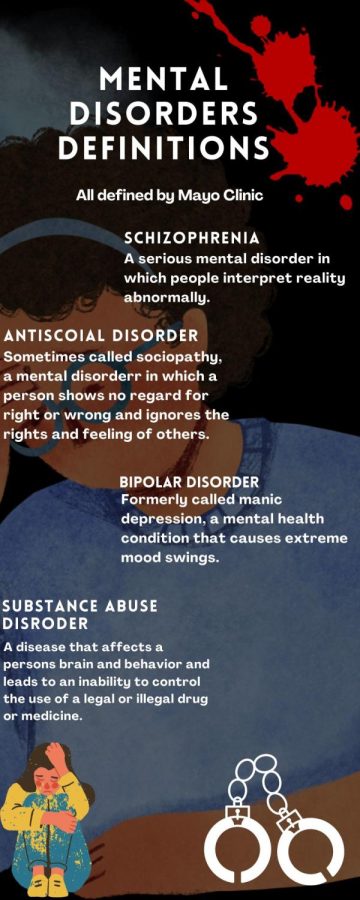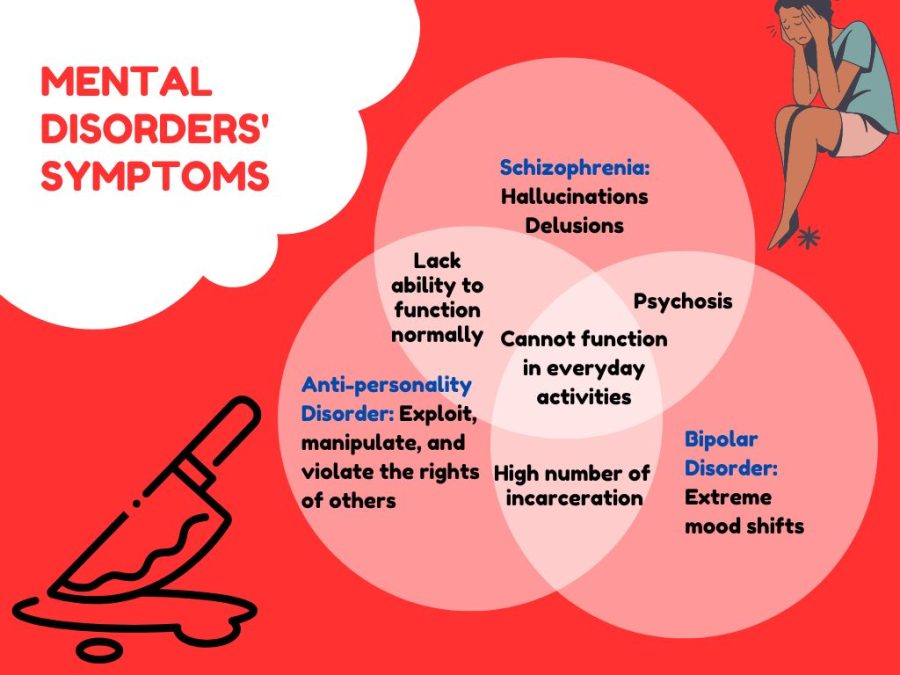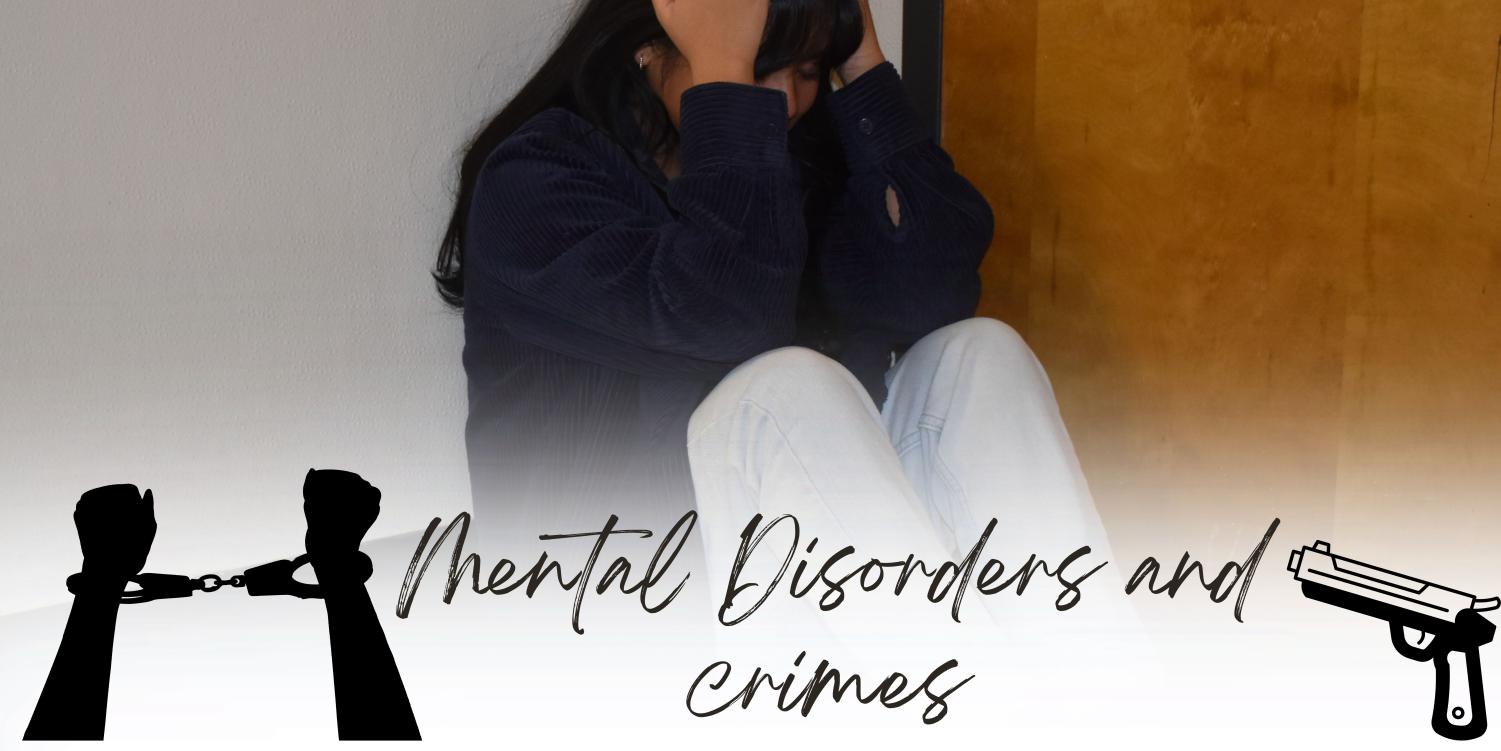Your donation will support the student journalists of North Cobb High School. Your contribution will allow us to purchase equipment and cover our annual website hosting costs.
To heal or to kill
May 1, 2023
A substantial portion of people holds a strong belief that people with mental illnesses inevitably perform criminal acts. Mentally ill citizens tend to serve longer sentences imposed by the court of law compared to the general population. However, the media and Hollywood such as “Criminal Minds” also play a great role in such perceptions by portraying them as crazy and psychotic; but not all mentally ill persons act in such a way or resort to such extreme lengths. People must realize that with proper treatment and care, these individuals can heal and not resort to violence.
“It (tv-shows) depends, but, most of the time, if it’s a mental illness where they are psychotic, sociopaths, or psychopath, they (media) portray it quite well, because there’s more research about it, especially [with] male leads. The moment they try to portray mental illness, like autism, they kind of mess up because there is not much research about those in specific, especially the female roles,” junior Maria Casco said.
For example, the public typically associates schizophrenia with criminals due to media and tv shows portraying it in such ways. Two million cases of people diagnosed with schizophrenia are diagnosed annually worldwide; diagnosed patients possess a higher chance of committing crime compared to the average population. Crimes performed by schizophrenic people heavily correlate with single men refusing treatment and substance abuse due to the stigma associated with psychiatrists and hospitals. According to National and International Data, 97% of families related to schizophrenics who dealt with their loved ones committing crimes against them choose not to report the crimes. Family members tend to struggle with reporting their mentally ill members due to the fear of people holding prejudices toward them.
A review study through National and International Data stated that people diagnosed with schizophrenia hold an increased risk of performing criminal and violent crimes such as homicide, assault, sexual offense, arson, illegal threats, robbery and intimidation. People who receive violent crime charges also frequently receive diagnoses with other forms of mental illnesses alongside schizophrenia such as mania and alcohol abuse. By taking therapies, antipsychotics and a number of other medications, one can lie with this illness and not commit violence.
Numerous stereotypes concerning Antisocial personality (ASD) appear on television, portraying them as untreatable and dangerous. People with an antisocial disorder tend to fail at fulfilling responsibilities related to school, work and family life. Unlike other disorders, psychiatrists can only diagnose kids showing violent tendencies with conduct disorder before age 18. By the age of 15, the patient’s psychiatrist can diagnose the patient with ASD. The children diagnosed with conduct disorder—25% of girls and 40% of boys— possess a high chance of receiving a diagnosis of antisocial personality disorder. Studies show that ASD develops through environmental factors, family dynamics and peer relationships. Childhood experiences also hold a factor in the development of antisocial disorder: physical abuse, sexual abuse and neglect. A psychoanalyst named Micheal F. Stone—who specializes in personality disorders— concluded that psychiatrists diagnose the majority of mass murderers with ASD. According to Psychiatric Services, people with Bipolar disorder perform a higher number of violent criminal acts than the general population due to manic phases, which cause one to break from reality; therefore, prisons hold a high percentage of prisoners diagnosed with Bipolar disorder. Transgressions and criminal acts tend to happen during the manic phases and can also happen during the depressive phases. Similar to schizophrenia, one can commit highly severe offenses, such as altruistic homicide and murder of a family member, in which they supposedly save their family from a tragic fate. People who show symptoms of Bipolar disorder at an early age, experience increased violence, psychotic episodes, anxiety episodes, suicides and suicide attempts. Bipolar disorder lasts for a lifetime, but with the proper treatment, medications and counseling, one can manage the mood swings.
 Mental Illness can or may increase the likelihood of an individual committing a violent crime but only a tiny portion of mentally ill individuals commit those crimes. Studies show that individuals with major mental illnesses possess higher chances of conviction for violent offenses than those without mental disorders.
Mental Illness can or may increase the likelihood of an individual committing a violent crime but only a tiny portion of mentally ill individuals commit those crimes. Studies show that individuals with major mental illnesses possess higher chances of conviction for violent offenses than those without mental disorders.
“I think it’s gonna be an individual basis, what’s going on and the circumstances of what’s going on. Is the person a danger to the community, what is the actual crime and are they a danger to themselves,” criminal justice teacher Dr. John Reagan said.
Substance use disorder—connected to drug and alcohol use— holds the highest risk of committing criminal acts of violence. According to American addiction centers, 265 people used alcohol, cocaine, and cannabis in a year while committing violent crimes including domestic violence and murders within that time frame. Studies showed that mentally ill people with a history of alcohol and drug use receive higher conviction rates for violent crime.
“Because many of them cannot get their meds and medicate themselves with drugs and alcohol, some mentally ill people do not have insurance coverage. Also, in the 70s, unless you were a criminal or a danger to society, you could not be held in an institution,” psychology teacher Tina Guest said.
Although evidence suggests mentally ill people have a high chance of committing criminal acts, others suggest mentally ill people have a higher chance of falling victim to violence than the perpetrator. Research claims that people with certain psychiatric conditions carry an increased chance of committing a crime due to susceptibility to not receiving sufficient treatment and actively experiencing delusion and long-term paranoia. Numerous individuals with mental illness do not receive appropriate treatment or easy access to mental health treatment. High cases of untreated mentally ill people committing homicide, even suicide. Budget cuts in funding for public and mental health increase criminal activity. A ninety-day treatment in a mental hospital could potentially prevent a 10-year imprisonment of a mentally ill individual. Better access to mental health treatment would greatly improve society and crime victims. The criminal justice system also needs improvement; it must refrain from mislabeling people with mental illness as criminals. These acts increase misconceptions of those with mental illness by the public. If one can choose themselves and receive the necessary treatment; the light at the end of the tunnel shall shine upon them and never commit these heinous crimes.

